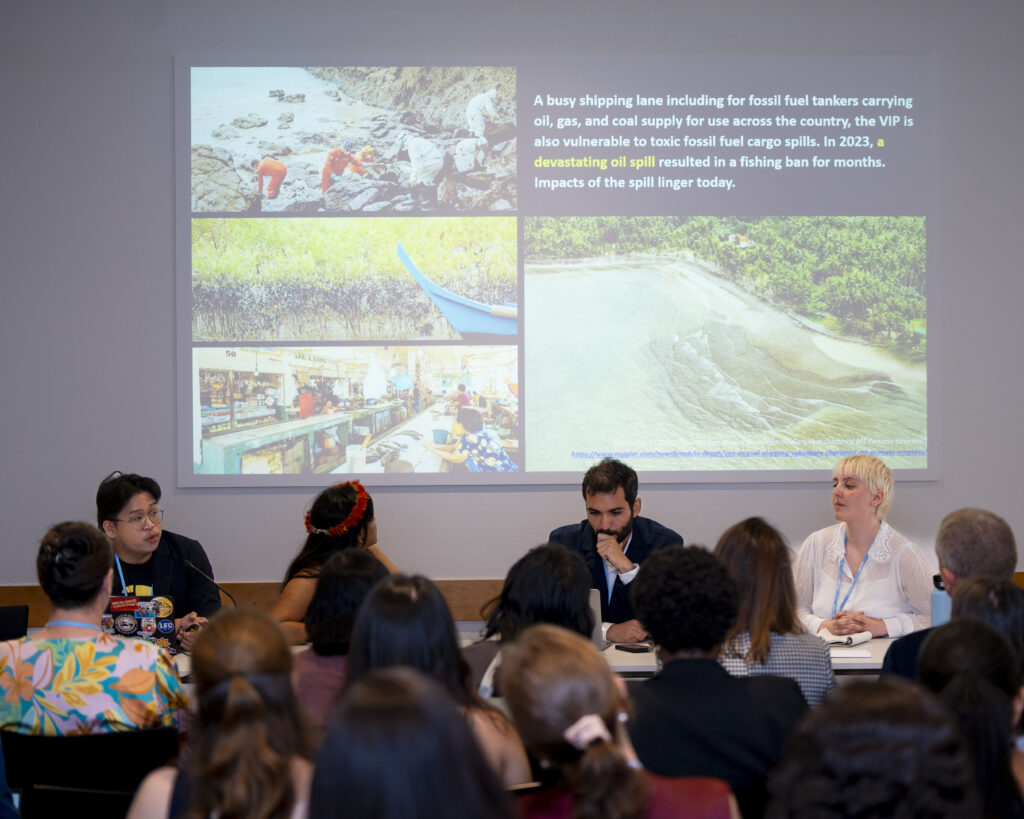
BONN, Germany — At the sidelines of the Bonn Climate Change Conference, civil society groups, academics, and frontline advocates emphasized that a just transition in food systems is essential in meeting climate, biodiversity, land restoration goals while upholding the right to food.
Think-tank Center for Energy, Ecology, and Development (CEED) highlighted the need to empower small-scale food producers and restore ecosystems against destructive practices in biodiversity hotspots across the world – such as in the Verde Island Passage, a rich marine strait in the Philippines that is currently confronting threats from industrial fishing and fossil fuel expansion.
Coastal communities along the VIP are facing a deepening food and livelihood crisis with local fisherfolk reporting a drastic decline in fish catch over the past decade.
“Before, fishermen once caught 15 to 10 kilograms of fishes a day; they now often return with only 1 to 3 kilograms of fish catch, barely enough to feed their families or earn a living,” said Jefferson Estela, Climate Campaigner of CEED, recalling stories of fisherfolk from the VIP.
According to a 2024 study, MIMAROPA, where most of VIP is located, suffered a nearly eight percent drop or decline in municipal fisheries production, amounting to a loss of 11,389 metric tons compared to the previous year. These losses are linked to the continued expansion of fossil fuel infrastructure, industrial shipping, oil spill, and encroachment of municipal waters which are degrading marine habitats and displacing small-scale fisherfolk from their traditional fishing grounds.
“In the Philippines, industrial fishing and fossil fuel expansion along our rich marine habitats isn’t just an environmental issue – it is an attack on food and livelihood security of many communities,” Estela added. “When marine ecosystems are destroyed, biodiversity and the health and survival of our people all suffer.”
The call was made at a side-event organized by Action Against Hunger with CEED, Brighter Green, HEDA Resource Centre, IATP, Swiss Lenten Fund, and World Animal Protection, which made the case for coordinated and synergistic policies, regulations and investments in just transitions of food systems towards agroecology as central to implementing the three Rio Conventions while fulfilling the right to food for all.
“Agroecology helps communities and agriculture to adapt to climate change through enhanced biodiversity and soil quality. This is only possible with the participation of farmers’ and social organisations and vibrant exchanges between scientific and local knowledge.” said Heitor Mancini Teixeira, a professor in Soil Science from Universidade Federal de Viçosa.
################
———————–The article provided is authorized for use, and represents solely the author’s personal opinions. Please contact us in the event of any potential infringement.



